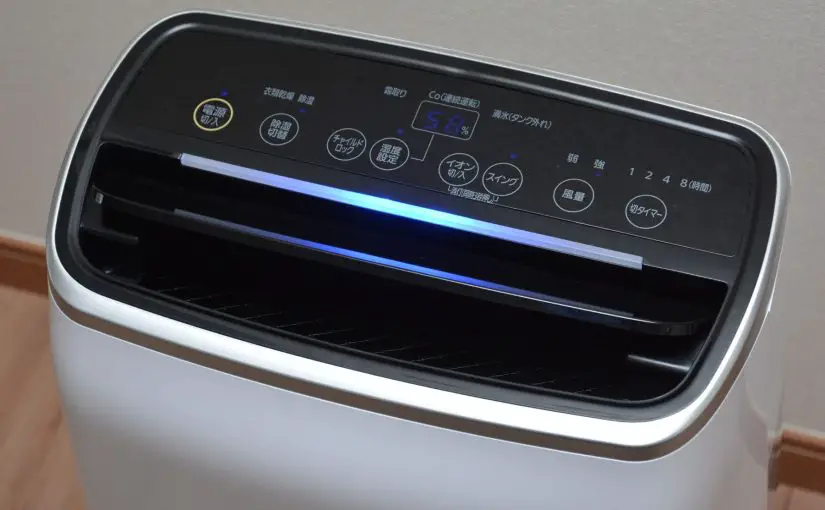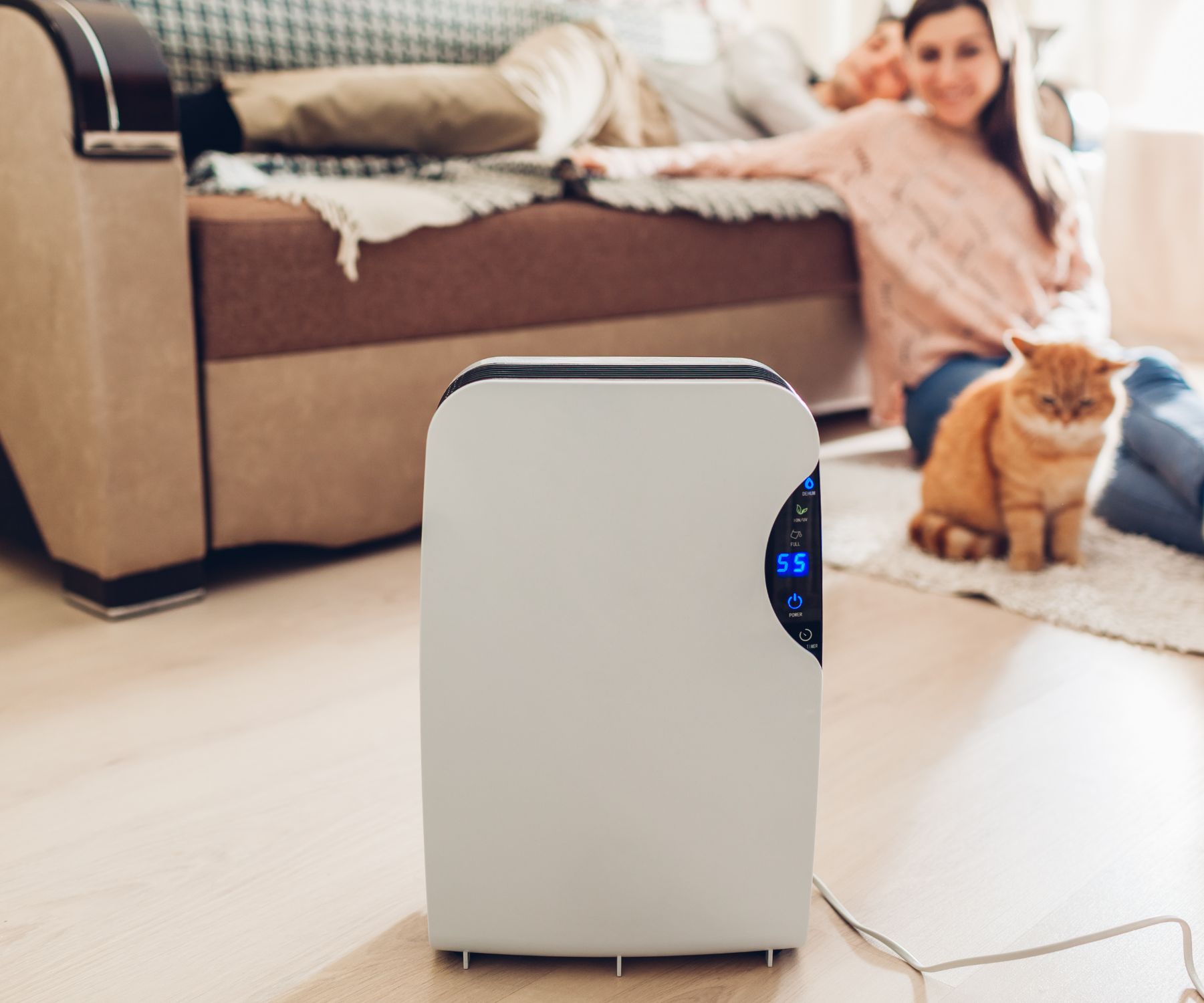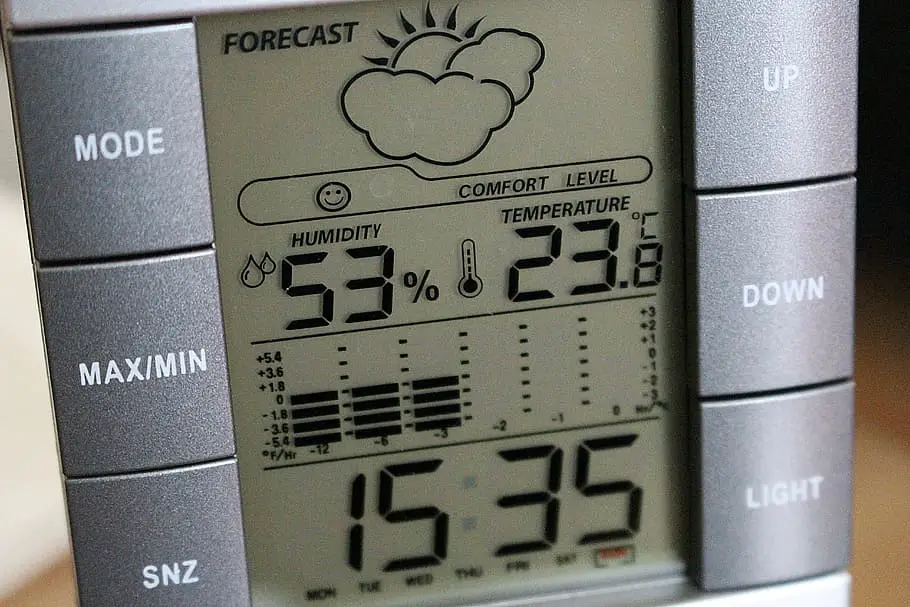If you’re like me, living in a city where humidity isn’t just a weather condition but a way of life, especially during the sweltering summer months, the thought of purchasing a dehumidifier has likely crossed your mind more than once.
It’s not just about combating the sticky feeling that seems to cling to everything; it’s about creating a comfortable, healthier home environment.
But, as with most things in life, dehumidifiers come with their share of pros and cons.
In this article, we’ll dive into both the sunny and the not-so-sunny sides of owning a dehumidifier. From the bliss of breathing easier to the potential pitfalls of maintenance, we’ll cover it all.
Plus, we’ll guide you through the maze of options to help you choose the dehumidifier that’s just right for your space and lifestyle.
Table of Contents
5 Positive Effects of Using a Dehumidifier
- Reduces Mold and Mildew Growth: Lower humidity levels make environments less hospitable for mold and mildew, which thrive in moist conditions.
- Improves Air Quality: By reducing humidity, dehumidifiers can help alleviate allergy symptoms and respiratory issues caused by dust mites and mold spores.
- Prevents Damage to Home: Excessive moisture can damage wood, paint, and electronics. Dehumidifiers help in preserving the structural integrity of a home.
- Comfortable Living Environment: High humidity can make a room feel hotter than it actually is. Dehumidifiers make indoor environments more comfortable.
- Controls Pests: Insects like cockroaches and silverfish prefer moist environments. A dehumidifier can help deter these pests.
5 Negative Effects of Using a Dehumidifier
- Over-Drying of Air: If used excessively, dehumidifiers can strip too much moisture from the air, leading to dry skin, irritated sinuses, and itchy eyes.
- Increased Energy Bills: Running a dehumidifier, especially a larger model, can lead to a significant increase in electricity consumption.
- Noise: Some dehumidifiers can be quite noisy, which might be disturbing, especially in quiet environments or during nighttime.
- Maintenance Requirements: Dehumidifiers require regular cleaning and maintenance to prevent mold and bacteria buildup inside the unit.
- Unintended Health Effects: In certain cases, dehumidifiers might lower humidity levels too much, potentially worsening respiratory conditions in sensitive individuals.
Expectations vs. Reality
 Scenario 1: Relief from Allergies
Scenario 1: Relief from Allergies
- Sarah lives in a humid coastal city and suffers from allergies and asthma.
- After Using a Dehumidifier: She noticed a significant reduction in allergy symptoms, fewer asthma attacks, and an overall more comfortable home.
 Scenario 2: High Energy Costs and Over-Drying
Scenario 2: High Energy Costs and Over-Drying
- Mark uses a dehumidifier to combat summer humidity.
- After Using a Dehumidifier: He faces higher electricity bills and issues like dry skin and disturbed sleep due to noise.
 Scenario 3: Preservation of Valuables
Scenario 3: Preservation of Valuables
- Emily, an avid collector, uses a dehumidifier to protect her collections.
- After Using a Dehumidifier: She observes better preservation of her books and artwork.
 Scenario 4: Maintenance Hassle
Scenario 4: Maintenance Hassle
- John, living in a basement apartment, bought a dehumidifier for dampness.
- After Using a Dehumidifier: He finds maintenance cumbersome and eventually stops using it regularly.
What is a Dehumidifier?
A dehumidifier is an appliance that reduces and maintains the level of humidity in the air. It is typically used for health or comfort reasons, or to eliminate musty odor and prevent the growth of mildew by extracting water from the air.
It works by drawing moist air into the unit, cooling the air to remove the moisture, and then reheating it and releasing it back into the room.
How Do You Use a Dehumidifier?
- Placement: Position it in an area with high humidity like basements or laundry rooms.
- Settings: Adjust the settings for desired humidity levels.
- Maintenance: Regularly empty the water collection tank and clean the air filter.
- Continuous Monitoring: Monitor the humidity levels and adjust the settings as needed.
When Do You Use a Dehumidifier?
- High Humidity Conditions: Use it in climates with high humidity or in damp areas like basements.
- Allergy Management: Helpful for people suffering from allergies or respiratory issues.
- After Water Damage: Useful for drying out spaces that have experienced significant water damage.
- Preserving Items: In spaces where you store sensitive items like books or electronics.
- Comfort and Odor Control: When your home feels damp or has a musty odor.
 How to Choose a Dehumidifier Based on Key Features
How to Choose a Dehumidifier Based on Key Features
- Pint Capacity: Choose based on the size of your space and the level of humidity. Larger rooms or higher humidity levels require a higher pint capacity.
- Humidistat: Look for a dehumidifier with a humidistat to set and maintain desired humidity levels.
- Continuous Drainage: Useful if you don’t want the hassle of emptying the water bucket frequently. Be warned though, This could include a garden hose strung across the floor.
- Auto-Defrost: Important for colder climates to prevent the coils from freezing.
- Energy Efficiency: Opt for an Energy Star certified dehumidifier for better energy usage and cost savings.
- Noise Level: Consider the noise level, especially if the unit will be placed in living spaces or bedrooms.
- Portability: Features like handles and wheels add convenience if you plan to move the unit around.
- Filter Indicator: Helps in maintaining the dehumidifier by indicating when the filter needs cleaning or replacement.
- Auto-Restart: Useful in areas with frequent power outages, ensuring the dehumidifier resumes operation automatically.
- Timer: Allows setting operating times for energy efficiency and convenience.
Dehumidifier Features Comparison
| Feature | Description | Importance Level |
|---|---|---|
| Pint Capacity | Amount of moisture the dehumidifier can remove in a day. | High |
| Humidistat | Allows you to set and maintain a desired humidity level. | High |
| Continuous Drainage | Option to drain water continuously without emptying a bucket. | Medium |
| Auto-Defrost | Prevents coils from freezing in cold temperatures. | Medium |
| Energy Efficiency | Energy Star certification indicates more efficient power usage. | High |
| Noise Level | Volume of noise produced by the unit, important for bedrooms or quiet areas. | Medium |
| Portability | Ease of moving the unit around, including handles and wheels. | Low to Medium |
| Filter Indicator | Alerts you when the filter needs to be cleaned or replaced. | Medium |
 What Size Dehumidifier to Buy
What Size Dehumidifier to Buy
- Houses with Two Stories: Consider separate dehumidifiers for each level or larger capacity units (30-40 pints) for each level.
- Houses with Crawl Spaces: Smaller dehumidifiers (around 20-30 pints) are usually sufficient.
- Single-Level Homes: Base the size on the square footage and humidity level. For moderate humidity in a 500 sq. ft area, a 10-12 pint dehumidifier is suitable.
- Room Conditions and Climate: Adjust capacity based on room conditions (very wet rooms) and the climate in your area.
Dehumidifier Size Guide
| Room Size (sq. ft.) | Humidity Level | Recommended Capacity (pints per day) |
|---|---|---|
| Up to 500 | Moderate | 10-12 |
| 500-1,000 | Moderate | 14-16 |
| 1,000-1,500 | Moderate | 18-22 |
| 1,500-2,000 | Moderate | 24-26 |
| 2,000-2,500 | Moderate | 28-30 |
| Up to 500 | High | 12-14 |
| 500-1,000 | High | 16-18 |
| 1,000-1,500 | High | 22-26 |
| 1,500-2,000 | High | 26-32 |
| 2,000-2,500 | High | 30-34 |
Note: “Moderate” humidity refers to noticeable dampness without visible water patches, while “High” refers to visibly wet floors or walls.
Summary
And there you have it! We’ve journeyed through the world of dehumidifiers, exploring their benefits and drawbacks, understanding how they work, and learning how to choose the right one for your needs.
Whether you’re battling high humidity levels, looking to alleviate allergy symptoms, or simply aiming for a more comfortable living environment, a dehumidifier can be a game-changer.
Remember, the key to reaping the benefits of a dehumidifier lies in choosing the right size and features for your specific situation. It’s not just about pulling moisture out of the air; it’s about creating a healthier, more comfortable space for you and your loved ones.
Regular maintenance and mindful usage will ensure that your dehumidifier works efficiently without becoming a burden.
As we wrap up, think of a dehumidifier as more than just an appliance; it’s a step towards a more comfortable and healthier home. So, whether you’re dealing with a damp basement or a sticky summer, the right dehumidifier can make all the difference.
FAQ
1. What exactly does a dehumidifier do?
A dehumidifier removes excess moisture from the air, helping to reduce humidity levels in your home. This creates a healthier and more comfortable living environment.
2. How do I know if I need a dehumidifier?
If your home feels humid, has a musty smell, or you notice condensation on windows, it might be a sign that you need a dehumidifier. It’s also useful for people with allergies to mold and dust mites.
3. Where is the best place to put a dehumidifier in my house?
The best place is where humidity is highest, like basements, laundry rooms, or bathrooms. Ensure it’s on a level surface and away from walls for proper air circulation.
4. Can a dehumidifier help with allergies?
Yes, by reducing humidity, it creates an environment less hospitable for allergens like dust mites and mold, which thrive in moist conditions.
5. How often should I clean my dehumidifier?
It’s recommended to clean the water bucket and air filter at least every two weeks to prevent mold and bacteria buildup.
6. Do dehumidifiers use a lot of electricity?
It depends on the model. Energy-efficient models, especially those with an Energy Star rating, consume less power. Larger models typically use more electricity.
7. Can a dehumidifier cool my room?
While it doesn’t function like an air conditioner, by reducing humidity, it can
make the air feel cooler and more comfortable in your room.
8. Are dehumidifiers noisy?
Some models can be noisy, but many modern dehumidifiers are designed to operate quietly, especially those intended for use in living spaces or bedrooms.
9. How long do dehumidifiers typically last?
With proper maintenance, a good quality dehumidifier can last about 5-10 years. Regular cleaning and proper usage can extend its lifespan.
10. Can I use a dehumidifier in the winter?
Yes, you can use a dehumidifier in the winter, especially in areas like basements where dampness can be a problem regardless of the season.














